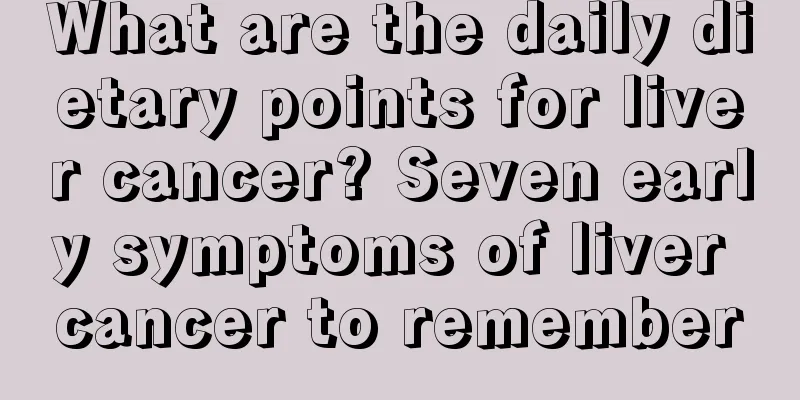Specific medicine to kill Helicobacter pylori

|
Helicobacter pylori is a bacterium that is difficult to cure in modern medicine. Although patients infected with Helicobacter pylori will not be in danger of life, they will suffer from symptoms such as stomach bloating, indigestion, and bad breath, which will seriously affect the patient's quality of life in the long run. In clinical practice, we mostly use anti-inflammatory drugs for treatment, but Helicobacter pylori can only be killed temporarily and will continue to grow over time. So what is the specific drug to kill Helicobacter pylori? Helicobacter pylori is a spiral, microaerophilic, Gram-negative bacillus. Its discovery is of epoch-making significance because studies have found that Helicobacter pylori is the culprit of gastric diseases such as gastric ulcers, gastritis, gastric cancer, and gastric mucosa-associated lymphoma. After the eradication of Helicobacter pylori, gastric ulcers and duodenal ulcers can heal faster, some chronic atrophic gastritis can be reversed or even completely restored to normal. For people with a family history of gastric cancer, eradication of Helicobacter pylori can reduce the risk of gastric cancer. For some low-grade gastric mucosa-associated lymphomas, they can even be cured after eradication of the bacteria. So, what many people are concerned about is, which drugs can treat Helicobacter pylori? First, antibiotics, which is one of the three sharp blades. Although there are many types of antibiotics, not every one of them can kill Helicobacter pylori. Studies have confirmed that antibiotics that can treat Helicobacter pylori include amoxicillin, clarithromycin, metronidazole, tetracycline, furazolidone, levofloxacin, etc. Second, proton pump inhibitors, commonly used ones are omeprazole, pantoprazole, rabeprazole, lansoprazole, and esomeprazole. Third, bismuth agents, such as colloidal pectin bismuth, potassium bismuth citrate, etc. In the past, the medical community used triple therapy, which is two antibiotics + one proton pump inhibitor, or two antibiotics + one bismuth agent, but due to the abuse of antibiotics, the drug resistance of Helicobacter pylori has gradually increased. At the Fourth National Helicobacter pylori Study Group Conference held in 2012, experts unanimously agreed that the quadruple therapy best suits my country's national conditions, that is, two antibiotics + one proton pump inhibitor + one bismuth agent, and the recommended course of treatment is 10 days. So, who should be treated against Helicobacter pylori? First, patients with a family history of gastric cancer are positive for Helicobacter pylori. Second, patients who are Helicobacter pylori positive and have concurrent peptic ulcer, gastritis, gastric cancer, and gastric mucosa-associated lymphoma. Third, patients who are Helicobacter pylori positive and take aspirin and glucocorticoids orally for a long time. If the physical examination only finds that Helicobacter pylori is positive, but there is no obvious organic gastric disease and no special gastrointestinal symptoms, no treatment is needed and dynamic observation can be performed. However, if the individual has a strong desire, Helicobacter pylori eradication can be performed. |
<<: Helicobacter pylori is most afraid of citric acid
>>: The harm of dental veneers_The disadvantages and harms of dental veneers
Recommend
Is beef easy to digest?
Beef is a common meat in our daily life. Many peo...
Why does the back hurt? Four major diseases cannot be ignored
More and more people are experiencing back pain. ...
What are the harms of washing your face with milk
Although washing your face with milk has many ben...
What can't people with Yinxiao disease eat
Many people may not know much about psoriasis, wh...
What are the five internal organs
I believe everyone has heard of the five internal...
Is it better to use cream or lotion in winter
In winter, the weather is relatively dry, which m...
What medicine can fight colorectal cancer
What medicine can fight colorectal cancer? Colore...
Can I have sex if I have cervical cancer?
Cervical cancer is a common gynecological disease...
Anal fistula surgery, timely surgery is very important
Purulence caused by anal fistula is the most typi...
Where are the bronchi?
Human breathing is inseparable from the trachea. ...
The preferred treatment for small liver cancer is surgical resection
Surgical resection is the first choice for treati...
How long does it take to boil zongzi in cold water
If you want to use cold water to cook rice dumpli...
Other symptoms of rectal cancer that are often confused by people include blood in the stool
Another symptom that is often confused with recta...
What medicine should I take for skin cancer ulcers
What medicine should I take for skin cancer ulcer...
What should I do if my eyes are blurred
Few people may know the term "hordeolum"...









